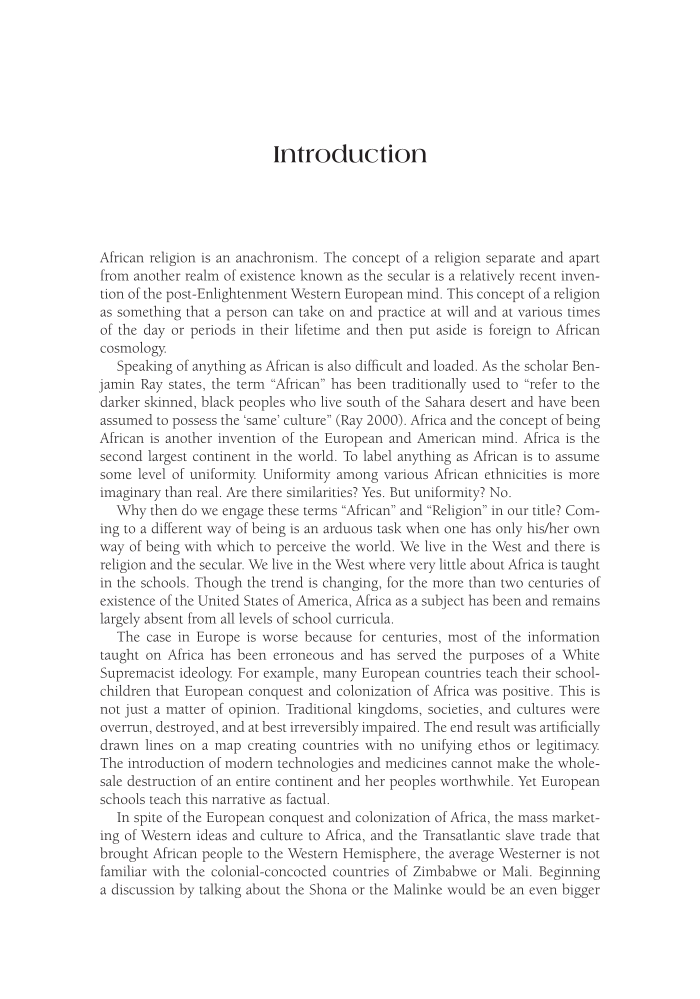Introduction African religion is an anachronism. The concept of a religion separate and apart from another realm of existence known as the secular is a relatively recent inven- tion of the post-Enlightenment Western European mind. This concept of a religion as something that a person can take on and practice at will and at various times of the day or periods in their lifetime and then put aside is foreign to African cosmology. Speaking of anything as African is also difficult and loaded. As the scholar Ben- jamin Ray states, the term “African” has been traditionally used to “refer to the darker skinned, black peoples who live south of the Sahara desert and have been assumed to possess the ‘same’ culture” (Ray 2000). Africa and the concept of being African is another invention of the European and American mind. Africa is the second largest continent in the world. To label anything as African is to assume some level of uniformity. Uniformity among various African ethnicities is more imaginary than real. Are there similarities? Yes. But uniformity? No. Why then do we engage these terms “African” and “Religion” in our title? Com- ing to a different way of being is an arduous task when one has only his/her own way of being with which to perceive the world. We live in the West and there is religion and the secular. We live in the West where very little about Africa is taught in the schools. Though the trend is changing, for the more than two centuries of existence of the United States of America, Africa as a subject has been and remains largely absent from all levels of school curricula. The case in Europe is worse because for centuries, most of the information taught on Africa has been erroneous and has served the purposes of a White Supremacist ideology. For example, many European countries teach their school- children that European conquest and colonization of Africa was positive. This is not just a matter of opinion. Traditional kingdoms, societies, and cultures were overrun, destroyed, and at best irreversibly impaired. The end result was artificially drawn lines on a map creating countries with no unifying ethos or legitimacy. The introduction of modern technologies and medicines cannot make the whole- sale destruction of an entire continent and her peoples worthwhile. Yet European schools teach this narrative as factual. In spite of the European conquest and colonization of Africa, the mass market- ing of Western ideas and culture to Africa, and the Transatlantic slave trade that brought African people to the Western Hemisphere, the average Westerner is not familiar with the colonial-concocted countries of Zimbabwe or Mali. Beginning a discussion by talking about the Shona or the Malinke would be an even bigger
Document Details My Account Print multiple pages
Print
You have printed 0 times in the last 24 hours.
Your print count will reset on at .
You may print 0 more time(s) before then.
You may print a maximum of 0 pages at a time.





















































































































































































































































































































